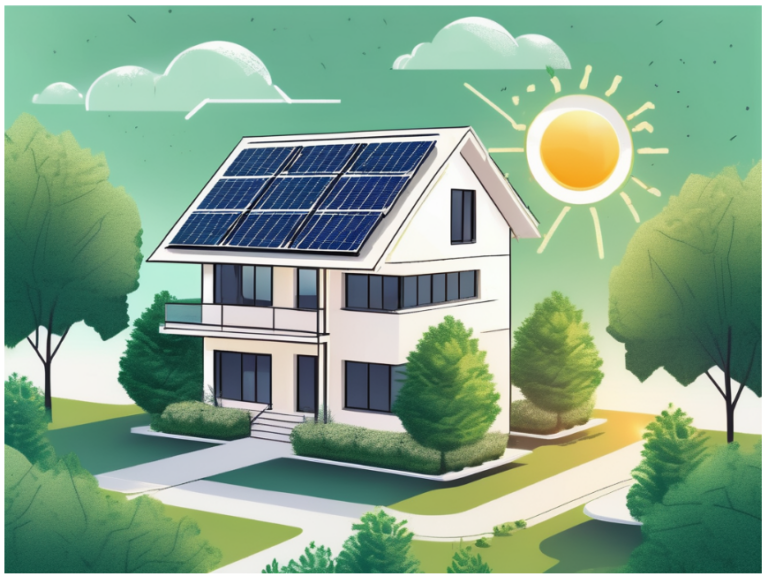Stay Cosy and Green: Winter Home Improvement Projects That Qualify for Eco Grants
As the winter season approaches, it’s the perfect time to consider home improvement projects that not only keep you warm and cosy but also contribute to a more sustainable environment. One great way to fund these projects is through eco grants. In this article, we will explore the world of eco grants for home improvements and guide you through the process of applying for them. We will also provide valuable insights into maximising the benefits of your eco grant and how eco-friendly improvements can impact your energy bills.
Understanding eco grants for home improvements
What are eco grants?
Eco grants, also known as eco-friendly grants or green grants, are financial incentives provided by various organisations and government bodies to encourage homeowners to make energy-efficient and environmentally friendly improvements to their properties. These grants typically cover a portion of the costs involved in implementing eco-friendly upgrades.
When it comes to making improvements to our homes, it’s important to consider not just the aesthetic appeal but also the impact on the environment. Eco grants play a vital role in promoting sustainable practices and helping homeowners make eco-friendly choices. By providing financial assistance, these grants make it easier for individuals to invest in energy-efficient technologies and reduce their carbon footprint.
One of the key benefits of eco grants is that they help make sustainable upgrades more affordable. From installing solar panels to upgrading insulation, these grants can cover a significant portion of the costs involved. This makes it easier for homeowners to make the switch to renewable energy sources and reduce their reliance on fossil fuels.
The importance of eco-friendly home improvements
Eco-friendly home improvements are crucial in the fight against climate change and the preservation of our planet. By adopting sustainable solutions and reducing carbon emissions, we can help create a greener future for generations to come. Additionally, eco-friendly upgrades often result in reduced energy consumption, lower utility bills, and an overall improvement in the comfort and well-being of your home.
When we think about home improvements, we often focus on enhancing the aesthetics or functionality of our living spaces. However, it’s equally important to consider the environmental impact of these changes. By opting for eco-friendly upgrades, we can significantly reduce our carbon footprint and contribute to a more sustainable future.
One of the most common eco-friendly home improvements is the installation of solar panels. Solar energy is a renewable source of power that can be harnessed to generate electricity for our homes. By utilising solar panels, homeowners can reduce their reliance on traditional energy sources and lower their carbon emissions. Additionally, solar panels can help save money on electricity bills in the long run, making them a financially viable option.
Another eco-friendly improvement that can have a significant impact is upgrading insulation. Proper insulation helps to regulate the temperature inside our homes, reducing the need for excessive heating or cooling. This not only saves energy but also reduces the strain on our heating and cooling systems, resulting in lower utility bills. Additionally, improved insulation can enhance the comfort of our homes by minimising drafts and maintaining a consistent temperature throughout.
Water conservation is another important aspect of eco-friendly home improvements. By installing low-flow faucets and showerheads, homeowners can significantly reduce water consumption without compromising on functionality. Additionally, rainwater harvesting systems can be implemented to collect and reuse rainwater for various purposes, such as watering plants or flushing toilets. These measures not only help conserve water but also reduce the strain on local water resources.
When it comes to eco-friendly home improvements, it’s important to consider the long-term benefits. While the initial investment may seem significant, the savings in energy costs and the positive impact on the environment make it a worthwhile endeavour. By taking advantage of eco grants and making sustainable upgrades, homeowners can contribute to a greener future while enjoying the benefits of a more energy-efficient and comfortable home.
Winter home improvement projects that qualify for eco grants
Winter is the perfect time to embark on home improvement projects that not only make your home warmer and more comfortable but also contribute to a greener and more sustainable future. With the help of eco grants, you can take on these projects without breaking the bank. Let’s explore some of the top winter home improvement projects that qualify for eco grants.
Insulation upgrades for a warmer home
One of the most effective ways to keep your home warm during the winter months is by improving its insulation. Eco grants can help cover the costs of insulation upgrades, such as adding insulation to walls, roofs, and floors. Proper insulation not only keeps your home cosy but also reduces heat loss, saving you money on heating bills.
When it comes to insulation, there are various options to choose from. For example, you can opt for cavity wall insulation, which involves filling the gap between your walls with insulating material. This helps to prevent heat from escaping through the walls, keeping your home snug and warm. Another option is loft insulation, which involves adding a layer of insulation material to the floor of your loft. This helps to prevent heat from rising and escaping through the roof, ensuring that your home stays toasty even on the coldest winter nights.
Additionally, floor insulation is another great way to improve the energy efficiency of your home. By insulating the floors, you can prevent heat loss through the ground, making your home feel warmer and more comfortable. Eco grants can help offset the costs of these insulation upgrades, making them more affordable and accessible for homeowners.
Energy-efficient heating systems
Upgrading your heating system to a more energy-efficient model not only reduces your carbon footprint but also ensures better heating performance. Eco grants can contribute towards the installation of high-efficiency boilers, heat pumps, or solar thermal systems, which provide sustainable ways of heating your home and hot water.
When it comes to heating systems, there are several options to consider. For instance, a high-efficiency boiler uses less fuel to produce the same amount of heat, resulting in lower energy consumption and reduced greenhouse gas emissions. Heat pumps, on the other hand, extract heat from the air or ground and use it to warm your home. These systems are highly efficient and can significantly reduce your heating costs.
Another eco-friendly option is solar thermal systems, which use the sun’s energy to heat water for your home. By installing solar panels on your roof, you can harness the power of the sun and reduce your reliance on conventional power sources. Not only does this help the environment, but it also saves you money on your energy bills.
Solar panel installation for winter months
Installing solar panels can be an excellent winter home improvement project that qualifies for eco grants. Solar panels harness the power of the sun to generate clean electricity, reducing your reliance on conventional power sources. In winter, although the days are shorter, solar panels can still generate valuable energy that helps offset your electricity usage.
When considering solar panel installation, it’s essential to assess your home’s suitability for solar energy. Factors such as the orientation and pitch of your roof, shading from nearby trees or buildings, and the available space for solar panels should be taken into account. By working with a professional solar installer, you can determine the best placement and configuration for your solar panels to maximise their energy production.
Not only do solar panels provide environmental benefits, but they can also offer long-term financial savings. With the help of eco grants, the upfront costs of solar panel installation can be significantly reduced, making it a more affordable option for homeowners.
So, if you’re looking to make your home warmer, more energy-efficient, and environmentally friendly this winter, consider these home improvement projects that qualify for eco grants. With the right upgrades and the support of eco grants, you can transform your home into a cosy and sustainable haven.
Maximising the benefits of your eco grant
Planning your home improvement project
Before commencing any work, it’s vital to plan your home improvement project thoroughly. Start by identifying the areas of your home that require upgrades and prioritise them based on your budget and the grant you’ve received. Careful planning will ensure you make the most of your eco grant and achieve the desired results within the allocated funds.
Ensuring your project meets eco grant requirements
Keeping in mind the specific requirements set by the eco grant scheme, work closely with contractors and professionals to ensure your project meets all the necessary criteria. Using eco-friendly materials and employing sustainable installation methods will not only maximise the benefits of your grant but also contribute to a more environmentally conscious home.
The impact of eco-friendly home improvements on your energy bills
How much can you save with eco-friendly improvements?
Eco-friendly home improvements can lead to significant savings on your energy bills. For example, proper insulation can reduce heat loss by up to 25%, resulting in substantial long-term savings. Upgrading to energy-efficient heating systems can also help you lower your monthly heating costs. By making smart choices, you can enjoy a warmer home while simultaneously reducing your energy expenses.
The long-term benefits of green home improvements
Investing in eco-friendly home improvements is a long-term commitment with multiple benefits. Not only do these upgrades contribute to a greener environment and lower energy bills, but they also increase the value of your property. As the demand for sustainable homes grows, properties with eco-friendly features tend to appeal more to buyers and enjoy higher resale values.
In conclusion, by embracing winter home improvement projects that qualify for eco grants, you can create a cosier and more sustainable living space. Understanding the concept of eco grants, selecting eligible projects, and following the application process can help you secure financial assistance for making energy-efficient upgrades. By maximising the benefits of your eco grant and prioritising eco-friendly home improvements, you can reduce your energy bills, decrease your environmental footprint, and enjoy a more comfortable and valuable home.



